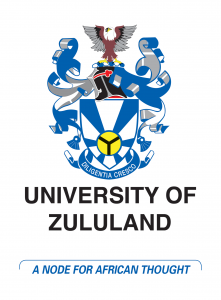The recognition of human rights is the bedrock of our constitutional democracy. It embodies the triumph of our freedom over struggles against social, economic and political injustice. As one of the most progressive canon of rights the world over, it is no mean feat to ensure that our constitutionally inherent rights are adequately protected. Indeed, this onus rests with the Human Rights Commission, a watch-dog and protector of our dignity, equality, freedom and sense of security since the dawn of democracy. The celebration of this feat thus cannot go understated.
Chapter 2 of the Constitution, The Bill of Rights succinctly codifies our listed rights. Beyond the listed rights enshrined in the constitution, certain rights have developed in keeping with an evolving social construct. The information superhighway is the bloodline of the fourth industrial revolution. We live in an age where simple, mundane to complicated tasks are conducted with ease on online platforms. The exchange of large data streams of information is essential for these platforms to function effectively. Social interactions, business and commercial engagements, research and information sharing are the norm on platforms like Facebook, Instagram, LinkedIn, Tinder, and even WhatsApp. Such is the attraction of highly successful platforms that we are inexplicably drawn into a perverse sense of self-worth, recognition and value. Perhaps the fickle mind is unable to detach itself from the attractions of social media and the gratification of instant fame it brings. With this progress and attraction comes the responsibility for each person to take the utmost care to protect their own information and that of others. It is disingenuous for one to accuse another of sharing one’s personal information on social platforms when oneself has published the very same information on Facebook, LinkedIn, WhatsApp, etc. Every bit (byte) of information cast in the public domain is traceable. There is significant truth to the claim that information posted on social platforms remain in the public domain for eternity, despite being deleted off the relevant account. Certain irate, yet irrational rants on social media of late comes to mind, as a case in point.
The present generation x of the 21st century is blessed with an acumen of the most intellectually and cognitively adept minds coupled the most advanced technologies that has ever existed. The protection and respect of our human rights is not the exclusive beset of an archaic generation rallying for the freedom of movement, speech or right to life. The duty to protect and respect human rights have squarely extended to the cyber world of Tik-Tok posts, Facebook rants, plagiarism on LinkedIn and the like. Now more than ever must a new generation of “freedom fighters” take the responsibility to protect the progression of our rights. To protect our personal information.
The protection of personal information, as inferred in the Bill of Rights has been promulgated into legislation. The Protection of Personal Information Act (POPIA) seeks to protect individuals from harm. POPIA focuses on organisations that process large amounts of personal information, particularly special personal information, children’s information, and account numbers. It is a fallacy that POPIA requires the holder of personal information to obtain the consent of the specific person. The Information Regulator is empowered to grant exemptions to allow people to process personal information without complying with the Act if the public interest outweighs the subject’s rights of privacy.
There are some anomalies. The characteristics of a purchase and sale of immovable property, for example raises questions. How does one not disclose the personal information of a Purchaser or a Seller? Their contact details are recorded for the purposes of the sale of property. The information is retained and shared by key role players including banks, departments and/or companies that attend to the issuing of compliance certificates, mortgages, etc. Extreme care must be taken when handling personal information as the penalty for breach is severe.
The balance between the public interest and individual rights has manifested in another prevalent debate: the right to refuse a vaccination. No doubt the pursuit of a cure for the COVID-19 virus has raised credible constitutional questions. At present the right not to vaccinate is deeply entrenched in our Bill of Rights as the right not to be subjected to medical procedures without an informed consent. It is often argued and supported that a person’s decision to take the vaccine should be voluntary.
Vaccines have been the end of contagious and lethal diseases including small pox, Ebola, meningitis, polio to the corona virus. Vaccines have proven to be the only viable solution to a global pandemic. Government has called for all persons, in the various roll out phases, to take the vaccine, whilst at the same time reiterating one’s right to respecting the rights of those who choose not to be vaccinated. Indeed, this narrative is consistent with the dictates of our constitution. However, a critical question comes to the fore: can this narrative change?
The objective of the vaccination programme is to eradicate the corona virus through the theory of herd immunity. There might come a time when it is scientifically proven that herd immunity will be reached through the participation of all members of society. If there is demonstrably irrefutable scientific evidence that the vaccine does not pose a threat to one’s health and safety, that herd immunity can be achieved only through the inoculation of all persons, would it be unconstitutional to compel people to vaccinate? Perhaps the answer lies with an analysis of the inoculation of babies.
There is no legal requirement that babies be inoculated at birth, or children at a young age. There is a moral and ethical duty on parents to protect their children and the community at large against dangerous diseases. Most schools require proof of immunisation as a pre-requisite condition for enrollment. A firmly grounded social construct demands that babies and young children be inoculated. In compliance, parents submit to the social construct of vaccination without recourse to the right not to vaccinate. In so doing, parents accept their submission as a justifiable limitation of their right not to be subjected to medical procedures without an informed consent. Anti-vaxxers being the exception. Those who are not immunised, increase the risk of infection that vaccines help to prevent. The Department of Health accordingly calls on parents to vaccinate their children as a preventative measure against communicable diseases. COVID-19 is communicable disease.
The compelled vaccination of children over the century is regarded as a justifiable limitation of an individual’s right to bodily integrity or right not to vaccinate, in the protection of the masses. In an open and democratic society, the interest and protection of the masses overshadows the interest of one individual. Does the narrative of the social construct thus not overshadow the right of one person for the benefit of the masses?
At present our right not to take the vaccine remains an absolute right, however it may not remain absolute forever. A future limitation of our rights will be informed by how the fight against the pandemic progresses. The declaration of a national state of disaster regulated in terms of the Disaster Management Act, justifiably limited our right to freedom of movement under all levels of lockdown, a limitation occasioned by the covid-19 pandemic. Though not inconceivable yet most unlikely, the imposition of compulsory vaccination would be a justifiable limitation occasioned by the covid-19 pandemic too.
- D Mothilall

